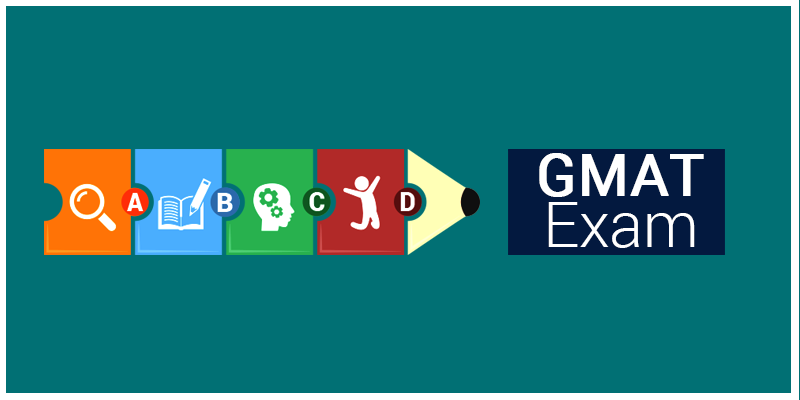A conundrum that a lot of students are faced with after the intensive three and a half hour exam is that of ‘The GMAT score’: Should I accept my GMAT exam total marks? Or should I reject it? It almost seems like a tease, the GMAC gives you ‘two minutes’ to decide whether you want to accept your score. After hours of preparation, and a highly absorbing, and enervating three hour session, how do you decide whether to abandon your score? (The Verbal, Quantitative and Integrated Reasoning Sectional scores are displayed; AWA scores are sent to you later, along with the other scores). Well, let’s try and deconstruct this. You can decide whether your score is good enough if you are mentally prepared beforehand.

Also remember that if you reject your score, and you want to reinstate it at a later stage; you just need to pay a $50 processing fee.
Let’s get a little more technical and understand the rules of the GMAT score-game:
- The default option is to cancel the scores, which means that if a test-taker chooses nothing, his or her score will be rejected.
- If you accept your scores, and realize later that your college cut-off is higher, or you have some other reason, the GMAT gives you a 72 hour window from the date of the examination to cancel your scores; again at a fee:$25.
You might be wondering: Oh! What a hassle! There’s no need to panic, we have a quick checklist that might help you clear your mind and make an informed decision:
- Understand the sole purpose of the GMAT; most of you are going to write this exam with the goal of securing your admission into top universities across the world. A thorough research will help you understand the cutoff scores, and average scores, which might help you gauge whether to accept your scores pretty easily. If you have not hit the cut-off of a few universities that you really want to get admitted to, the decision becomes very easy.
- Certain universities require a very balanced GMAT exam total marks, while others require specific cut offs across the 2 sections. Study the pattern well in advance.
- If you are within 5% of the average scores of the b-schools that you are applying to, you stand a good chance; of course, you need to also have a really good profile which would add to the strength of your score.
Whether you have a good day or a bad one, be ready to fight it out, and give it another shot; whatever the score. We encourage you to prepare thoroughly, and be confident before giving the exam. Let us, briefly, go over the framework of preparation for the GMAT exam total marks:
- Understand what the examination is testing you on
- Review where you stand
- Consistency and Self-Analysis
- Key analytics before the exam
UNDERSTANDING THE GMAT Examination:
The Graduate Management Admissions Test (GMAT) tests you across various skills, but can primarily be split into 4 different sections: Verbal, Quant, Integrated Reasoning and Analytical Writing. The best method to understand what the GMAC is testing you on is to take a ‘Diagnostic Test’. Mock tests will enable you to understand the overall context of the subject areas involved in the GMAT. Apart from the mock tests, read the contents of the Official Guide; browse through the different sections of the GMAC website; and lastly, whatever your performance on the GMAT mock tests, do not underestimate or overestimate yourself. Give yourself enough time for adequate preparation, review and analytics.
REVIEW WHERE YOU STAND:
The diagnostic tests will help you analyze approximately where you stand with respect to your foundations in both the Verbal and the Quantitative sections. Honest feedback and analysis could go a long way in establishing your strong and your weak points. A SWOT (Strengths, Weaknesses, Opportunities, Threats) framework would again accurately enable you to prepare your process-path towards a better GMAT score.
CONSISTENCY AND SELF-ANALYSIS:
GMAT Self-preparation is key to a GMAT exam total marks better score, and when a person is into a self-preparation mode, he or she must be consistent with the steps of preparation. Remember that the GMAT examination is all about momentum; do give yourself sufficient time to understand the nuances of the examination. Make a schedule and adhere to it, however difficult it might be. Hard work and dedication are key to your success.
KEY ANALYTICS BEFORE YOUR EXAM:
A few points to note before your examination are:
- Overconfidence after taking the mock tests: Do not be over-confident and arrogant after taking a mock test. At times, students neglect their preparation schedule and deviate from it after scoring well in one or two mocks. Remember that this is a big fallacy; whatever your score on your mocks, do not get complacent and lackadaisical.
- Lack of confidence in picking answers: Be confident about the answer choices you pick. Read carefully, and understand the different options. If you shortlist your answers to the last two-three, and cannot pick an answer confidently. Review our process in that particular topic/ question type.
Improve your GMAT exam total marks with CATKing! Also Read : GMAT Tips to follow on the day exam If you would like to know more about the test, please do visit to our website CATKing and we’d be more than happy to help you out with the GMAT exam total marks!
All the best!


Comments are disabled for now